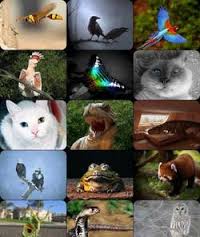
Nature of work
A zoologist study the characteristics and habitats of animals and wildlife. His typical tasks revolve around developing and conducting experimental studies with animals in controlled or natural surroundings, collecting biological data and specimens for further analysis, and studying the characteristics of animals, such as their interactions with other species, reproduction, diseases, and movement patterns.Moreover, he have to analyze the influence that human activity has on wildlife and their natural habitats, estimate wildlife populations, Write research papers, reports, and scholarly articles that explain findings then give presentations on research findings.
In addition, he handle making recommendations to policymakers and the general public on wildlife conservation and management issues, besides using a variety of scientific tests and experiments. For example, he take blood samples from animals to assess their levels of nutrition.
A zoologist need to use geographic information systems, modeling software and other computer programs to estimate populations and track the behavior patterns of animals. He also use these programs to forecast the spread of invasive species, diseases, and other potential threats to wildlife.
Environment of work
Work environment ranges between office, laboratory, or outdoor. Take into consideration that a zoologist might face some difficulties. For instance, depending on his position, he may spend considerable time in the field gathering data and studying animals in their natural habitats. Also, he may work outdoors in varying weather conditions and extreme temperatures while conducting research or management activities. An aptitude with technology is also considered as a benefit to him. While zoologist is following this career path, he often utilize highly specialized scientific equipment. Furthermore, fieldwork can require him to travel to remote locations all over the world. For example, if a zoologist are a marine biologist, he may spend months at sea on a research ship. Fieldwork can be physically demanding, and he works in both warm and cold climates and in all types of weather. Professional life
As the population grows and expands into new areas it will expose wildlife to threats such as disease, invasive species, and habitat loss. Increased human activity causes problems, such as pollution and climate change that endanger wildlife. For example, changes in climate patterns can be detrimental to the migration habits of animals, and increased sea levels can destroy wetlands. For this reason, more zoologists will be needed to research, develop, and carry out wildlife management and conservation plans that combat these threats and protect our biological resources. Also, they are important to study the impact of population growth and development on wildlife and their habitats.A zoologist have good job opportunities. In addition to job growth, many job openings will be created by him when retired, advance to management positions, or change careers.
Typically monthly starting salaries: from 45000 SYP
Getting the job
Candidates must have at least a Bachelors degree. Graduate level degrees, such as a Masters or PhD, are generally preferred and often required for advanced research or teaching positions. The major pursued by an aspiring zoologist is usually biology, zoology .they can earn their initial Bachelors degree in biology before focusing in on zoology during graduate level studies.Courses in biology, anatomy and physiology, chemistry, physics, mathematics (especially statistics), communications, and computer technology will be required for pursuit of any degree in the biological sciences. They may also need to take additional courses in animal science, veterinary science, animal behavior, animal husbandry, and ecology to complete degree requirements.
Skills
A successful zoologist must have the following skills:Critical-thinking skills. A zoologist need sound reasoning and judgment to draw conclusions from experimental results and scientific observations.
Interpersonal skills. A zoologist typically work on teams; therefore he must be able to work effectively with others to achieve their goals.
Observation skills. A zoologist must be able to notice slight changes in an animal’s characteristics, such as their behavior or appearance.
Problem-solving skills. A zoologist need to find the best possible solutions to threats that affect wildlife, such as disease and habitat loss.
Speaking skills. One of his tasks is giving presentations to colleagues, managers, policymakers, and the general public. For this reason, a zoologist must be able to educate others on wildlife conservation and management issues.
Writing skills. As what we have mentioned before a zoologist will write scientific papers, reports, and articles that explain findings.
Sources and references
For further information we provide some websites: www.criticalzoologists.org, Insititute of Critical Zoologists
mayazoology.weebly.com, A nice zoology website
www.prospects.ac.uk, Graduated Official website
Arab Standard Classification of Occupations, 2008, Ed. Arab Labor Organization
